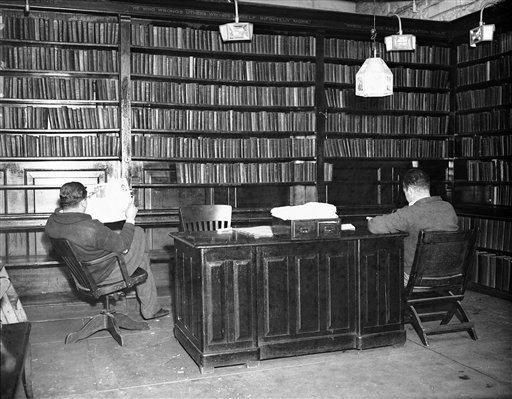
Bell v. Wolfish (1979) said a New York prison restriction against pretrial detainees' receiving hardcover books did not violate the First Amendment as it was neutrally applied. In this historic photo, inmates of the penitentiary on welfare Island in New York, take advantage of the prison library, Dec. 16, 1931. (AP Photo, used with permission from the Associated Press)
Although many Supreme Court cases deal with the rights of prisoners, Bell v. Wolfish, 441 U.S. 520 (1979), was distinctive because it dealt primarily with the rights of pretrial detainees.
Prisoners challenged book restriction on First Amendment grounds
Prisoners in the Metropolitan Correctional Center in New York brought challenges to several policies, including the facility’s practice of “double-bunking” inmates; rules prohibiting inmates from receiving hardcover books unless they were mailed directly from publishers, book clubs, or bookstores; restrictions on other incoming packages; searches of inmates’ rooms; and strip searches of inmates after they received visitors. The restriction related to books directly implicated the First Amendment.

